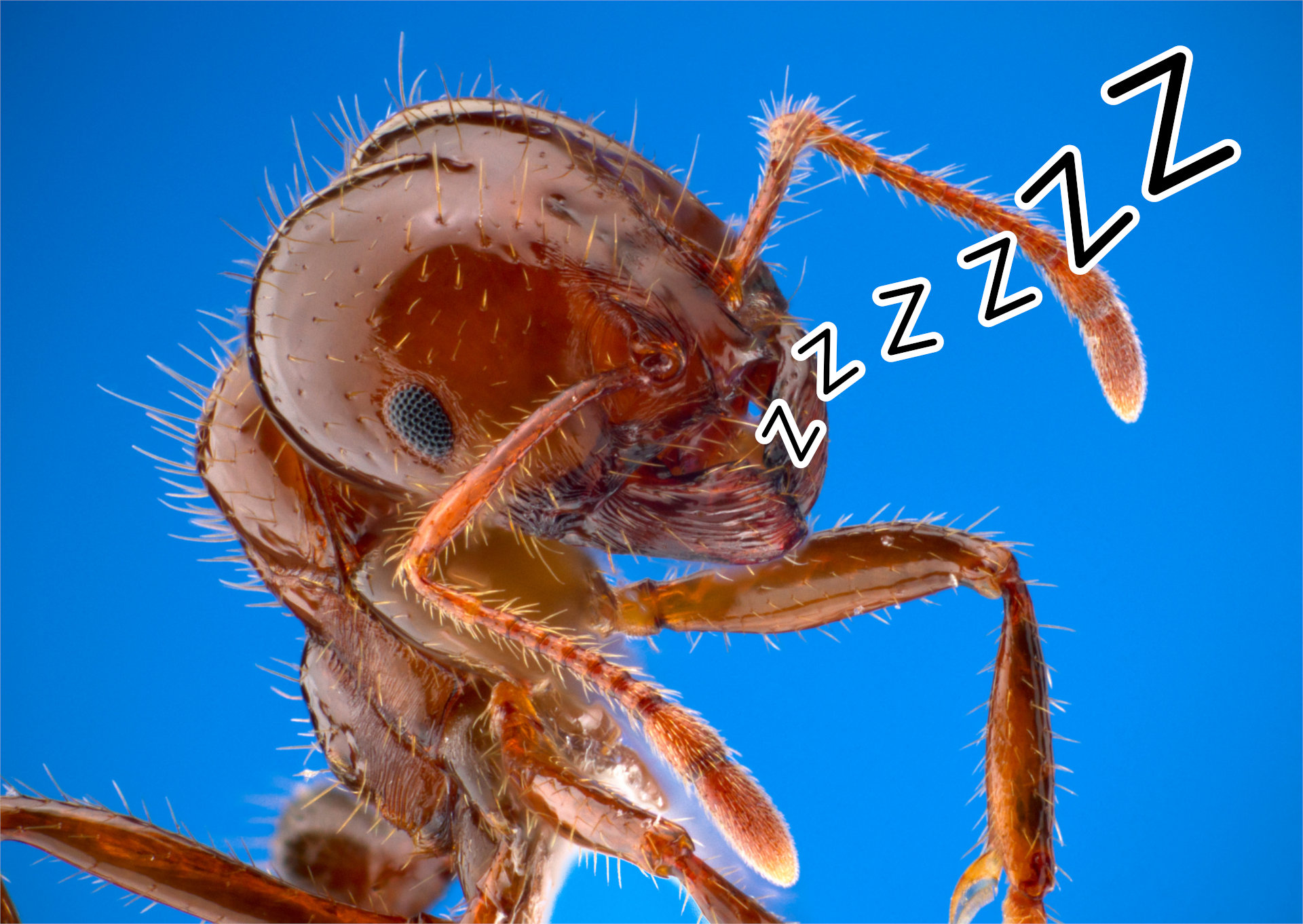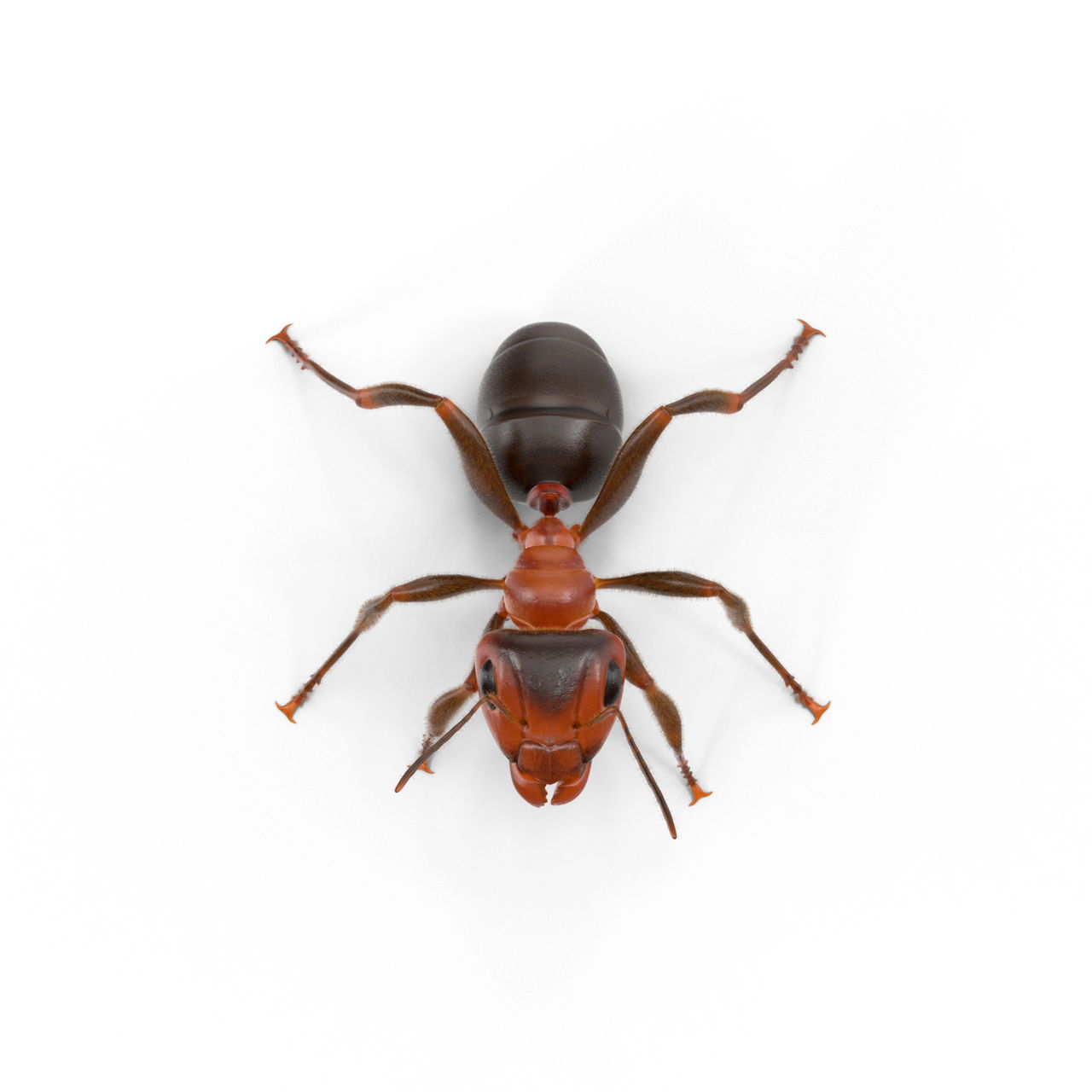Have you ever wondered if ants sleep? They’re always bustling around, carrying food, building their colonies, and just generally being the ultimate team players. But do they ever hit the hay, or is it a 24/7 hustle for these tiny creatures? Believe it or not, ants do sleep, but their rest patterns are nothing like ours. This article dives deep into the fascinating world of ant sleep habits, uncovering some surprising truths about their daily routines.
If you’ve ever stopped to watch an ant colony in action, you might think they’re a bunch of workaholics who never take a break. But here’s the thing—ants aren’t immune to fatigue. Just like humans, they need rest to function properly. The big question is, how do they manage to balance their busy schedules with sleep? Let’s find out.
Understanding whether ants sleep isn’t just about satisfying curiosity; it’s also a window into the intricate workings of insect behavior. By exploring this topic, we can gain insights into the efficiency of ant colonies and the importance of rest in maintaining productivity. So, buckle up, because we’re about to embark on a journey into the sleep lives of ants!
- How To Access Raspberry Pi Remotely Over The Internet A Stepbystep Guide
- Unlocking The Power Of Supercell Pin A Comprehensive Guide
Do Ants Really Sleep?
Yes, ants do sleep, but their sleep isn’t like ours. Humans and most mammals experience long, consolidated periods of rest, often lasting several hours at a stretch. Ants, on the other hand, take short, frequent naps throughout the day and night. These naps are so brief that you might miss them if you blink!
Research conducted by scientists has shown that worker ants, the ones you see scurrying around, can take up to 250 naps a day, each lasting around a minute. Queen ants, the matriarchs of the colony, have a slightly different sleep pattern, taking fewer but longer naps. This difference in sleep behavior is crucial for maintaining the colony’s productivity and ensuring the queen’s longevity.
How Do Ants Sleep?
Ant sleep is characterized by periods of immobility, where the ants appear to be resting. During these times, their antennae droop, and they become less responsive to stimuli. It’s like they hit pause on their busy lives to recharge. But here’s the kicker—ants don’t have eyelids, so they can’t close their eyes to sleep. Instead, they rely on behavioral cues and environmental factors to signal when it’s time to rest.
- Securely Connect Remote Iot Vpc Your Ultimate Guide To Safeguarding The Future
- Maichan Erome The Rising Star In The Digital Age
Interestingly, the sleep patterns of ants vary depending on their role in the colony. Worker ants, who are responsible for foraging and caring for the young, take more frequent naps to keep up with their demanding tasks. Soldier ants, who guard the colony, may have different sleep schedules to ensure the colony is always protected.
Why Do Ants Need Sleep?
Just like humans, ants need sleep to maintain their physical and mental well-being. Sleep is essential for repairing tissues, consolidating memories, and maintaining overall health. Without adequate rest, ants would be unable to perform their duties effectively, which could jeopardize the survival of the colony.
Studies have shown that sleep-deprived ants exhibit reduced cognitive abilities and decreased productivity. This highlights the importance of rest in maintaining the efficiency of ant colonies. By understanding why ants sleep, we can gain insights into the role of sleep in other species, including humans.
The Science Behind Ant Sleep
Scientists have been studying ant sleep patterns for years, using a combination of observation and technology to uncover the mysteries of their rest behavior. One study conducted by researchers at the University of Sydney used infrared cameras to monitor ant activity around the clock. The results were fascinating, revealing that ants have a highly organized sleep schedule that is synchronized with the needs of the colony.
Another study, published in the Journal of Insect Behavior, found that ant sleep is influenced by factors such as temperature, humidity, and food availability. These environmental cues help regulate the sleep-wake cycle of ants, ensuring they are well-rested and ready to tackle their daily tasks.
Comparing Ant Sleep to Human Sleep
While ants and humans both need sleep, there are some significant differences in how we rest. Humans typically experience a single, extended period of sleep each night, characterized by distinct sleep stages such as REM and non-REM sleep. Ants, on the other hand, take short, frequent naps throughout the day and night, without experiencing the same sleep stages as humans.
This difference in sleep patterns is due to the unique demands of each species. Humans require longer periods of rest to process complex information and recover from physical exertion. Ants, with their simpler nervous systems and less demanding cognitive tasks, can get by with shorter, more frequent naps.
What Can We Learn from Ant Sleep?
Studying ant sleep can teach us valuable lessons about efficiency and productivity. Ants have mastered the art of balancing work and rest, ensuring they are always ready to tackle new challenges. By taking short, frequent breaks, they avoid burnout and maintain peak performance.
Humans can apply these principles to their own lives by incorporating short, regular breaks into their daily routines. This approach, known as the Pomodoro Technique, has been shown to improve focus and productivity. So, the next time you’re feeling overwhelmed, take a cue from the ants and take a quick break to recharge.
The Role of Sleep in Ant Colonies
Sleep plays a crucial role in the functioning of ant colonies. By taking short, frequent naps, ants ensure they are always well-rested and ready to perform their duties. This rest strategy allows them to maintain high levels of productivity and efficiency, which is essential for the survival of the colony.
Moreover, sleep helps ants maintain their physical and mental health, reducing the risk of illness and injury. This is particularly important for worker ants, who are responsible for the day-to-day operations of the colony. By prioritizing rest, ants ensure the long-term success of their communities.
The Impact of Sleep on Colony Success
The sleep patterns of ants have a direct impact on the success of their colonies. Well-rested ants are more productive, efficient, and resilient, enabling them to overcome challenges and thrive in a variety of environments. This highlights the importance of rest in maintaining the health and vitality of ant colonies.
Furthermore, the synchronized sleep schedules of ants help ensure that the colony is always functioning at optimal levels. By coordinating their rest periods, ants can maintain a constant level of activity, ensuring the colony’s survival even in the face of adversity.
Common Misconceptions About Ant Sleep
There are several misconceptions about ant sleep that have persisted over the years. One of the most common is the belief that ants don’t sleep at all. While it’s true that ants don’t sleep in the same way humans do, they still require rest to function properly. Another misconception is that all ants have the same sleep patterns, when in fact, different roles within the colony have different rest needs.
Additionally, some people believe that ants are immune to fatigue, which couldn’t be further from the truth. Like all living creatures, ants need rest to maintain their health and well-being. By dispelling these myths, we can gain a deeper understanding of the fascinating world of ant sleep.
Addressing Misconceptions
To address these misconceptions, it’s important to educate people about the realities of ant sleep. By sharing scientific research and observations, we can help others appreciate the complexity and importance of rest in the lives of ants. This knowledge can also inspire us to adopt healthier sleep habits in our own lives.
Do All Ants Sleep the Same Way?
No, not all ants sleep the same way. Different species of ants have unique sleep patterns that are adapted to their specific environments and lifestyles. For example, desert ants, which live in extreme conditions, may have different rest needs than ants living in temperate forests. Similarly, ants that forage during the day may have different sleep schedules than those that are active at night.
Furthermore, the role an ant plays within the colony can influence its sleep behavior. Queen ants, for instance, have different rest needs than worker ants, as they are responsible for laying eggs and ensuring the survival of the colony. Understanding these variations in sleep patterns can help us appreciate the diversity and complexity of ant behavior.
Exploring Species-Specific Sleep Patterns
Research into species-specific sleep patterns has revealed some fascinating insights into the lives of ants. For example, studies have shown that fire ants, which are known for their aggressive behavior, take shorter, more frequent naps than other species. This may be due to the high demands of their foraging and defensive activities.
On the other hand, leafcutter ants, which are famous for their impressive leaf-carrying abilities, have been observed taking longer naps during the night. This may be related to their nocturnal lifestyle and the need for rest after a long day of foraging.
Conclusion: The Importance of Rest in the Lives of Ants
Do ants sleep? Absolutely! While their rest patterns may differ from ours, ants rely on sleep to maintain their productivity, efficiency, and overall well-being. By studying ant sleep, we can gain valuable insights into the importance of rest in maintaining the health and vitality of both individuals and communities.
So, the next time you see an ant colony in action, take a moment to appreciate the incredible balance of work and rest that keeps these tiny creatures thriving. And remember, whether you’re an ant or a human, rest is an essential part of life that should never be overlooked.
What are your thoughts on ant sleep? Do you think there’s more to discover about these fascinating creatures? Leave a comment below and let us know! And don’t forget to share this article with your friends and family to spread the word about the importance of rest in the lives of ants.
Table of Contents
- Do Ants Really Sleep?
- How Do Ants Sleep?
- Why Do Ants Need Sleep?
- Comparing Ant Sleep to Human Sleep
- The Role of Sleep in Ant Colonies
- Common Misconceptions About Ant Sleep
- Do All Ants Sleep the Same Way?
- Exploring Species-Specific Sleep Patterns
- Conclusion: The Importance of Rest in the Lives of Ants



Detail Author:
- Name : Ms. Annette Purdy
- Username : considine.clay
- Email : gerhold.antonio@gmail.com
- Birthdate : 2003-09-21
- Address : 23140 Russel Garden Suite 738 Braedenberg, WY 34866-8310
- Phone : +1-248-659-7501
- Company : Stokes-Kris
- Job : Child Care
- Bio : Error atque incidunt dignissimos ratione dolore et. Asperiores dolor nostrum numquam odit ipsum nulla.
Socials
tiktok:
- url : https://tiktok.com/@alexandra_id
- username : alexandra_id
- bio : Eaque quos quis ut dolor id. Dolorum voluptatem nostrum cupiditate occaecati.
- followers : 3714
- following : 669
instagram:
- url : https://instagram.com/alexandraruecker
- username : alexandraruecker
- bio : Adipisci quos aut sed illo odio earum tempore. Fugiat tempora in voluptas assumenda officiis.
- followers : 3808
- following : 491